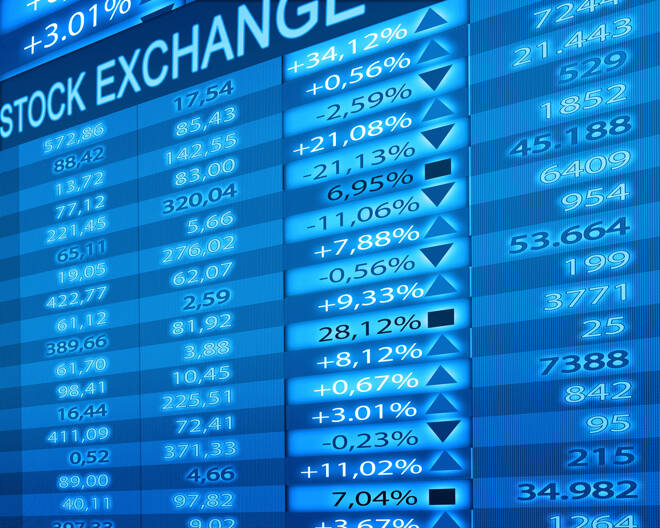Advertisement
Advertisement
Philips Core Earnings Surge 7% in Q4, Shares Gain
By:
Dutch multinational conglomerate Philips said its core earnings surged 7% in the fourth quarter and said it has planned to deliver low-single-digit comparable sales growth, driven by solid demand for diagnosis & treatment and personal health.
Dutch multinational conglomerate Philips said its core earnings surged 7% in the fourth quarter and said it has planned to deliver low-single-digit comparable sales growth, driven by solid demand for diagnosis & treatment and personal health.
Philips reported EBITA of 1.14 billion euros in the last quarter of 2020, with comparable sales growing 7% at 6 billion euros. The health technology company reported EPS from continuing operations (diluted) amounted of EUR 0.66; Adjusted EPS increased to EUR 0.94, compared to EUR 0.83 in Q4 2019.
As a result of our stronger performance in the second half of the year, following a challenging first half due to the impact of COVID-19, the performance was resilient, the company said in the statement. For the full-year 2020, the company delivered 3% comparable sales growth, an Adjusted EBITA margin of 13.2% and a strong free cash flow of EUR 1.9 billion.
Philips closed 2.31% higher at €46.69 in Amsterdam on Monday; the stock rose nearly 3% in 2020.
Analyst Comments
“We expect Philips’s shares to show relative outperformance to the EU MedTech sector today. Philips reported its Q4 FY20 result this morning, which represented a slight beat to consensus. Despite our concerns that Philips could make some cautionary statements regarding its previously announced FY21 guidance, due to a resurgence of COVID-19, the company appears to remain confident in its previously set objectives,” said Michael Jungling, equity analyst at Morgan Stanley.
“Improving growth profile: New FY21-25 targets of +5-6% comparable sales growth imply an acceleration from the historical CAGR of +4%. Margin Recovery: Improvement in mix across the business drives higher operational leverage, while cost management initiatives in Personal Health and Diagnosis & Treatment helps limit pressures on EBITA margin. Valuation: we believe a durable growth recovery in the capital equipment market and consumer demand for Personal Health, puts the company in an attractive risk-reward positioning relative to other companies in our sector over the next 12 months.”
Philips Stock Price Forecast
Nine analysts who offered stock ratings for Philips in the last three months forecast the average price in 12 months at €50.22 with a high forecast of €52.00 and a low forecast of €44.00. The average price target represents a 10.56% increase from the last price of €45.43. From those nine analysts, eight rated “Buy”, one rated “Hold” and none rated “Sell”, according to Tipranks.
Morgan Stanley gave a base target price of €50 with a high of €67 under a bull scenario and €34 under the worst-case scenario. The firm currently has an “Overweight” rating on the health technology company’s stock.
Several other analysts have also recently commented on the stock. Philips has been assigned a €44.00 target price by equities researchers at JP Morgan. The firm presently has a “neutral” rating on the stock. Sanford C. Bernstein set a €52 target price and gave the stock a “buy” rating. Berenberg Bank set a €49 price target and gave the stock a “buy” rating.
In addition, Deutsche Bank set a €52 price target and gave the stock a “buy” rating. Kepler Capital Markets set a €44 target price and gave the company a “neutral” rating. At last, Barclays set a €51 price objective and gave the stock a “buy” rating.
Upside and Downside Risks
Risks to Upside: 1) Product Launch Momentum: Momentum from on-going product launches and COVID-19 focused products drive top-line growth and market share gains. 2) Online retail strategy: Growth in online consumer retail could accelerate organic growth – highlighted by Morgan Stanley.
Risks to Downside: 1) FX: EM currency volatility could be a source of headwinds on margins. 2) COVID-19: pressure on consumer and hospital budgets following a potential COVID-19 driven recession.
Check out FX Empire’s earnings calendar
About the Author
Vivek Kumarauthor
Vivek has over five years of experience in working for the financial market as a strategist and economist.
Advertisement
